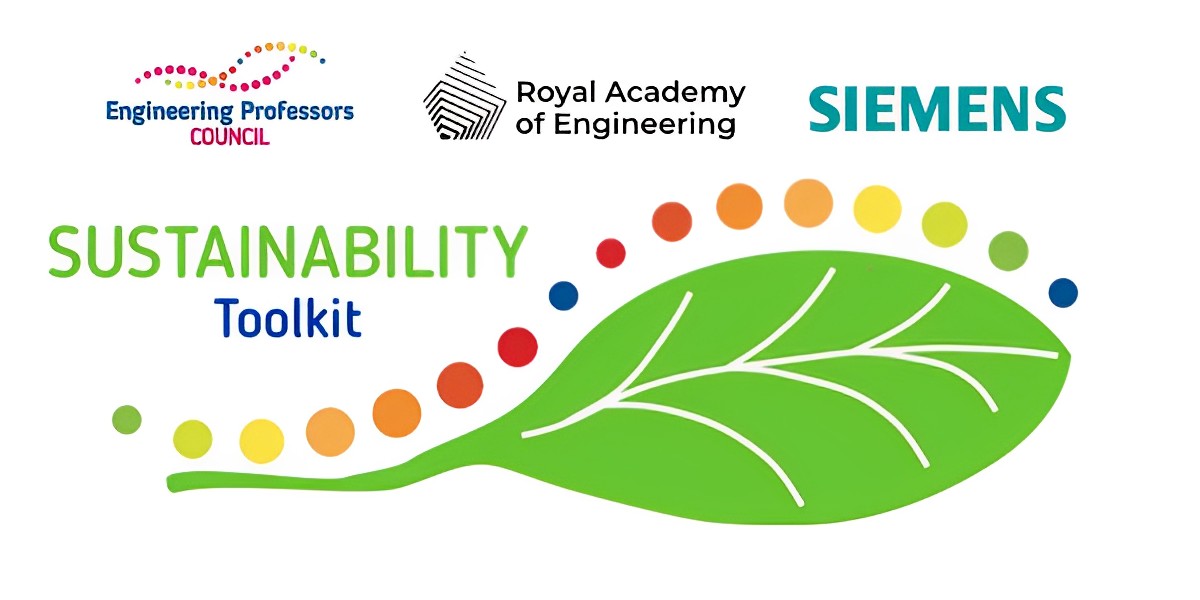Author: Onyekachi Nwafor (CEO, KatexPower).
Topic: Harmonising economic prosperity with environmental responsibility.
Tool type: Knowledge.
Relevant disciplines: Any.
Keywords: Environmental responsibility; Pedagogy; Economic growth; Ethical awareness, Interdisciplinary; Collaboration; AHEP; Sustainability; Environment; Biodiversity; Local community; Climate change; Higher education.
AHEP mapping: This resource addresses two of the themes from the UK’s Accreditation of Higher Education Programmes fourth edition (AHEP4): The Engineer and Society (acknowledging that engineering activity can have a significant societal impact) and Engineering Practice (the practical application of engineering concepts, tools and professional skills). To map this resource to AHEP outcomes specific to a programme under these themes, access AHEP 4 here and navigate to pages 30-31 and 35-37.
Related SDGs: SDG 8 (Decent work and economic growth); SDG 10 (Reduced Inequalities); SDG 13 (Climate action).
Who is this article for? This article should be read by educators at all levels in higher education who wish to consider how to navigate tradeoffs between economic and environmental sustainability as they apply to engineering. Engaging with this topic will also help to prepare students with the soft skill sets that employers are looking for.
Premise:
In the face of the ever-growing need for economic progress and the escalating environmental crises, the engineering profession finds itself at a crossroads. Striking a delicate balance between economic growth and environmental sustainability is no longer an option but an imperative. This article delves into the pivotal role of engineering educators in shaping the mindset of future engineers, offering an expanded educational framework that fosters a generation capable of harmonising economic prosperity with environmental responsibility.
The uneasy truce:
Developing nations, with burgeoning populations and aspirations for improved living standards, grapple with the paradox of rapid economic expansion at the expense of environmental degradation. This necessitates a shift in focus for engineering educators, who bear the responsibility of cultivating engineers with a foresighted perspective. Rather than demonising economic growth, the goal is to instill a nuanced understanding of its interdependence with environmental well-being. For example, in developing countries like Brazil, rapid economic expansion driven by industries such as agriculture and logging has resulted in extensive deforestation of the Amazon region. This deforestation not only leads to the loss of valuable biodiversity and ecosystem services but also contributes to climate change through the release of carbon dioxide. Similarly, in industrialised nations, the pursuit of economic growth has often led to the pollution of air, water, and soil, causing adverse health effects for both humans and wildlife.
Equipping our future stewards:
To navigate this delicate landscape, educators must move beyond traditional technical expertise, fostering a holistic approach that integrates ethical awareness, interdisciplinary collaboration, localised solutions, and a commitment to lifelong learning.
1. Ethical awareness: One potential counterargument to the expanded educational framework may be that the focus of engineering education should remain solely on technical expertise, with the assumption that ethical considerations and interdisciplinary collaboration can be addressed later in a professional context. However, research has shown that integrating ethical awareness and interdisciplinary collaboration early in engineering education not only enhances problem-solving skills but also cultivates a sense of responsibility and long-term thinking among future engineers.
2. Holistic thinking: Research has shown that interdisciplinary collaboration between engineering and social science disciplines can lead to more effective and sustainable solutions. For instance, a study conducted by the World Bank’s Water and Sanitation Program (WSP) found that by involving sociologists and anthropologists in the design and implementation of water infrastructure projects in rural communities, engineers were able to address cultural preferences and local knowledge, resulting in higher acceptance and long-term maintenance of the infrastructure. Similarly, a case study of a renewable energy project in Germany demonstrated how taking into account the geographic nuances of the region, such as wind patterns and solar radiation, led to more efficient and cost-effective energy solutions. Presently, Germany boasts the world’s fourth-largest installed solar capacity and ranks amongst the top wind energy producers.
3. Localised solutions: Students must be required to consider the social, cultural, and geographic nuances of each project. This means moving away from one-size-fits-all approaches and towards an emphasis on the importance of context-specific solutions. This ensures that interventions are not only technologically sound but also culturally appropriate and responsive to local needs, fostering sustainability at both the project and community levels.
4. Lifelong learning: Empower students with the skills to stay abreast of emerging technologies, ethical frameworks, and policy landscapes. Recognise that the landscape of sustainability is dynamic and ever evolving. Foster a culture of continuous learning and adaptability to ensure that graduates remain true stewards of a sustainable future, equipped to navigate evolving challenges throughout their careers.
A compass for progress:
By integrating these principles into engineering curricula, educators can provide students with a moral and intellectual compass—an ethical framework guiding decisions toward a future where economic progress and environmental responsibility coexist harmoniously. Achieving this paradigm shift will require collaboration, innovation, and a willingness to challenge the status quo. However, the rewards are immeasurable: a generation of engineers empowered to build a world where prosperity thrives alongside a healthy planet—a testament to the true potential of the engineering profession.
Engineering teachers can raise a generation of engineers who can balance economic growth with environmental responsibility by embracing a broader educational framework that includes ethical awareness, cross-disciplinary collaboration, localised solutions, and a commitment to lifelong learning. Through the adoption of these principles, engineering curricula can provide students with a moral and intellectual compass, guiding them toward a future where economic progress and environmental sustainability coexist harmoniously.
References:
International Renewable Energy Agency (IRENA) (2023). ‘Pathways to Carbon Neutrality: Global Trends and Solutions’, Chapter 3.
Sharma, P. (2022) ‘The Ethical Imperative in Sustainable Engineering Design’, Chapter 5.
United Nations (2021) ‘Goal 13: Climate Action. In Sustainable Development Goals: Achieving a Balance between Growth and Sustainability’. (pp. 120-135).
World Bank (2022) ‘Renewable Energy in Developing Nations: Prospects and Challenges’, pp.10-15.
This work is licensed under a Creative Commons Attribution-ShareAlike 4.0 International License.
Any views, thoughts, and opinions expressed herein are solely that of the author(s) and do not necessarily reflect the views, opinions, policies, or position of the Engineering Professors’ Council or the Toolkit sponsors and supporters.
To view a plain text version of this resource, click here to download the PDF.





